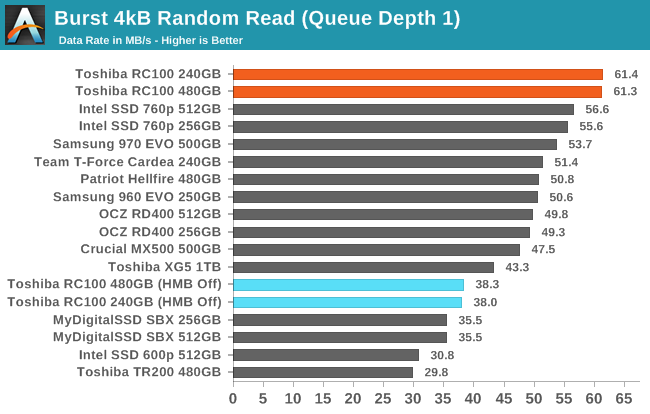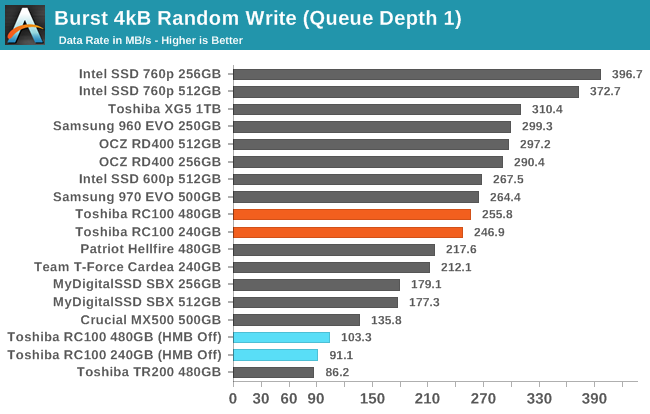- May 4, 2000
- 16,068
- 7,383
- 146
https://www.anandtech.com/show/12819/the-toshiba-rc100-ssd-review
Interesting drive, but it appears the 120GB and the 240GB version should be avoided. When filled, the 120GB loses 90% of its performance, which is pretty horrible. However, at current pricing the MyDigitalSSD SBX is still the entry-level NVMe drive to beat. Otherwise, a person who was willing to pay $155 for the 480GB version of this drive, would be very wise to spend the extra $20 and get the HP EX900 instead.
Some users will value the RC100 for its unique features such as the M.2 2242 form factor. Most users simply want to know if low-cost NVMe drives like the RC100 mean that NVMe is ready to push SATA out of the mainstream SSD market. The answer there is still clearly "no", but we are getting closer to having NVMe drives that can beat SATA on both price and performance.
Interesting drive, but it appears the 120GB and the 240GB version should be avoided. When filled, the 120GB loses 90% of its performance, which is pretty horrible. However, at current pricing the MyDigitalSSD SBX is still the entry-level NVMe drive to beat. Otherwise, a person who was willing to pay $155 for the 480GB version of this drive, would be very wise to spend the extra $20 and get the HP EX900 instead.




